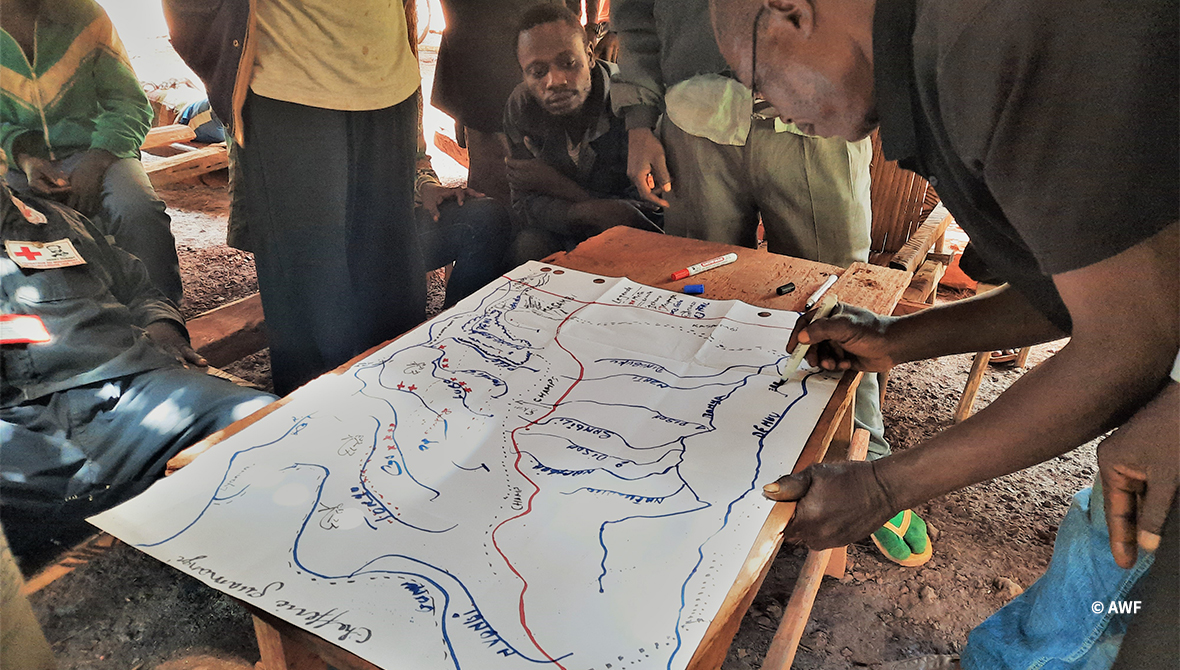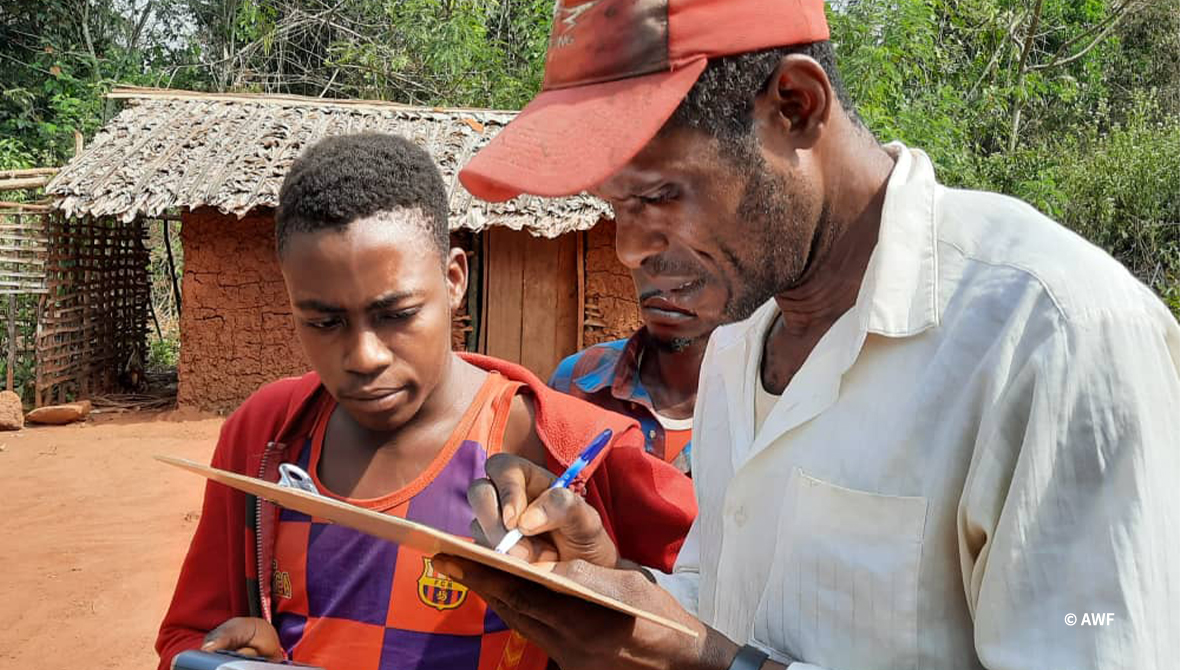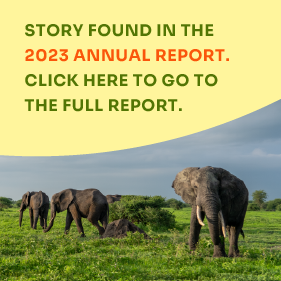New Wildlife Corridors Mapped and Eco-Guards Sensitized to Community Rights in the DRC’s Bili-Uele Landscape

The participatory mapping process strategically allocates land in the interest of people and wildlife.
Covering an area about the size of Switzerland, the Bili-Uele Protected Area Complex in northern DRC is facing pressures from mining, deforestation, and insecurity, all of which threaten important wildlife habitat. AWF has worked in the area since 2016. In FY23, we concluded a five-year European Union-funded project designed to improve governance, management of natural resources, and security in the landscape. As part of this project, we led land-use planning processes to strategically allocate land to maximize both ecological integrity and productivity for people. One outcome was the designation of 4,527 square kilometers for wildlife corridors. The plans set aside other zones for agriculture, hunting, forest harvesting, fishing, and artisanal mining, leaving the corridors open as critical habitat for forest elephants and chimpanzees.

Inclusive local workshops drive land-use decision-making in Bili-Uele.
Inclusive and transparent conservation planning workshops ensured that diverse stakeholders—including local authorities, representatives chosen by the local communities, wildlife authorities, and private sector actors like fishers, farmers, and hunters—had a role in determining land use recommendations. These workshops enable communities to make informed decisions about where to locate houses, roads, and other infrastructure, as well as to better understand where farming and extractive activities will have the least detrimental impact.
The project also supported the DRC’s wildlife authority, the Institut Congolais pour la Conservation de la Nature (ICCN), in recruiting 40 new eco-guards to deter poaching and increase security in Bili-Uele, running trainings in anti-poaching, law enforcement, and rights-based conservation. Technical and financial support was also provided for patrols.
Violent conflict is a major threat to both people and wildlife in the area. To address this, the project built capacity and trained law enforcement to map and respond to security threats and collaborate across borders. After the first two years of the project, 65% of community members surveyed reported a greater sense of safety in the landscape, where even walking to the market can be a risk due to various regional conflicts and militias.
“I am happy to see that efforts made by AWF and its partners to restore security in our area are bearing fruit. Markets are open again and business activities have resumed, making it no longer a problem to get food. Now even my child can go to the market without worrying about whether he will come back safe and sound or not,” said Nyamada Léon, head of the local Bambilo community.
AWF has partnered with the DRC’s wildlife authority since 2016. As a result of these activities, the key species we monitor—chimpanzees and forest elephants—remained stable between 2019 and 2022, with populations estimated at 1,525 and 144 individuals, respectively. In addition, the reduction of bush fires and promotion of sustainable agriculture stabilized deforestation where we worked. Chimpanzees, baboons, buffaloes, pangolins, and even elephants were sighted where their presence had not been observed for several years.
